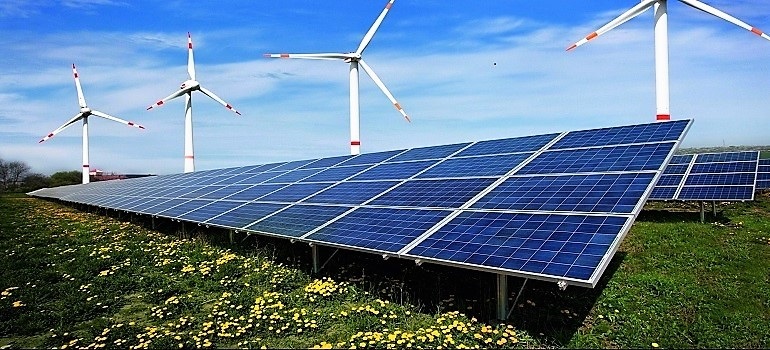 Foreign Secretary S Jaishankar today laid a pitch for India making a strong commitment to promoting its technologies abroad through business activities and development partnerships.
Foreign Secretary S Jaishankar today laid a pitch for India making a strong commitment to promoting its technologies abroad through business activities and development partnerships.
“On the diplomatic side, widening Indian access technology has been one of our longest standing endeavours. I can state with some pride that there have been very few countries whose foreign policy has created that many openings with major technology sources,” said S Jaisankar at a technology summit here.
India has negotiated bilaterally and multilaterally to expand technology cooperation and understanding in a wide variety of fields.
“While traditionally, the focus was on nuclear, defence and space, today it extends to other forms of energy, rail roads, urban and agricultural technology, water resources and health,” Jaishankar said.
He was speaking on ‘Technology Diplomacy: Prospects for India and Japan’ at the two-day Global Technology Summit 2017 organised by Carnegie India here.
Pointing to the country’s efforts till now to accelerate inward flows, the foreign secretary observed that this was balanced today by a growing emphasis on outward collaborations.
Towards that end, it is imperative for India to shape key negotiations and deliberations, whether it is in Geneva, Vienna or Paris, he stressed.
It was equally essential now to start taking the lead in deployment of technologies and the International Solar Alliance was a notable initiative in that regard, Jaishankar pointed out.
“But as a country, we need to show strong commitment to promoting our technologies abroad through business activities and developmental partnerships,” Jaishankar said further.
He also touched on its various facets, including extending lines of credit and facilitating trade and services.
Stating that the history of international affairs is in many ways the history of technology, he said equations between societies and nations had been largely determined by this factor, and most dramatically, they were expressed in the outcome of military conflicts.
But there was also more secular rise of economic power, one that is essentially driven by the growth of technological and later industrial capacities, he explained.
“… if technology impacted the international power distribution, the pace and capacity for adaptation certainly contributed to the rise and fall of nations and eventually to the nature of the global order,” Jaishankar added.
Acknowledging that India’s contemporary history had been one of playing “technology catch-up” like other large modernising societies like Russia, Japan, Korea and China, the foreign secretary said that for a variety of reasons, it has been a much harder journey for India.
Now, the technology challenge, according to the top diplomat, had shifted from access to absorption, generation and deployment, and it was sought to be addressed by programmes like Make in India, Skill India, Digital India and Startup India.
“Making it easier to do business is also integrating India into global technology supply chains. This will accelerate as we appreciate the distinction between Make in India and Make for India,” Jaishankar emphasised.
He cited the example of Japan that brings a unique combination of economic, political, technological and cultural synergies and the country indirectly or directly has driven the larger economic resurgence of Asia.
“So, if there is a partner that India needs to reach out to at this juncture it is that country (Japan),” he said, adding that Japan has had the long-standing presence in Indian economy and society.
Jaishnkar also noted that Japan was responsible for two major technological upgrades in India — Maruti and Metro — which have had the ripple effects beyond the narrow sectors and helped change the Indian mindset and lifestyle.
“We are now poised for a third upgrade like high-speed rail technology,” he said, adding that “today, there seems to be a much broader Japanese thinking on India — one that suggests that the larger and stronger Indian economy is in Japan’s strategic interest”.
Japan is the partner country for the Global Technology Summit 2017.
Speaking at the same event, Japanese Ambassador to India Kenji Hiramatsu said there is huge potential for his country to tap into from Bengaluru, India’s technology hub.
“I will be discussing this possibility with Japanese business leaders,” he said.
ALSO READ:


